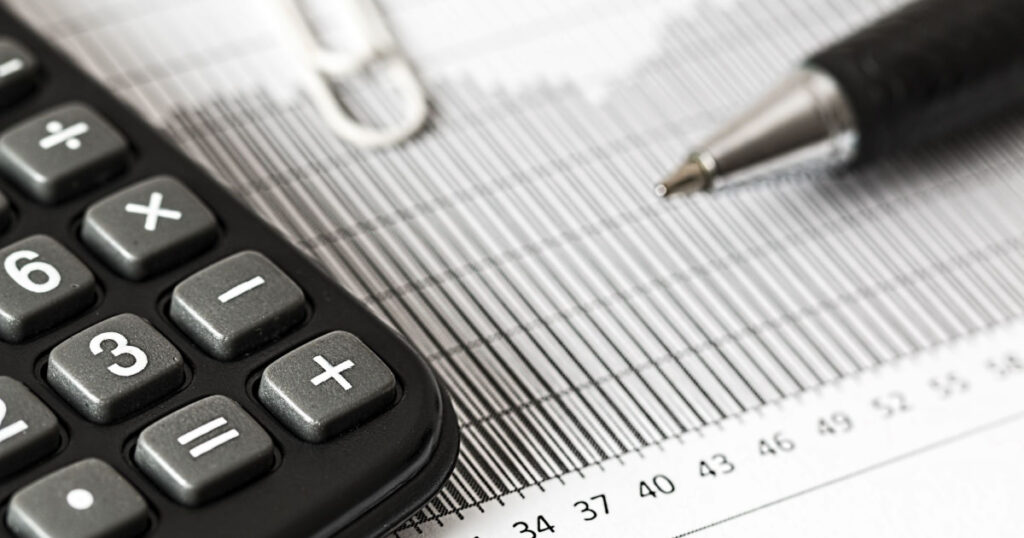For decades, Canadian homeowners have followed the same retirement playbook: work hard, pay down your mortgage, and retire with a home that's completely yours. It's a goal that feels financially responsible and emotionally satisfying, the ultimate symbol of financial security.
But here's the thing: that traditional wisdom might be costing you a better retirement.
The housing market across Canada has created unprecedented opportunities for homeowners aged 55 and older. Your home equity has likely grown substantially over the years, yet many retirees find themselves in a frustrating position – wealthy on paper but struggling with monthly cash flow.
This raises an important question that challenges conventional thinking: Is it more valuable to retire with no mortgage, or with no mortgage payment?
The difference between these two scenarios could transform how you experience retirement. One path might leave you house-rich but cash-poor. The other could provide the financial flexibility to truly enjoy your golden years while still preserving your home's value.
The Real Question: Mortgage-Free vs Payment-Free
When most people think about retirement and homeownership, they envision that final mortgage payment, the moment when they own their home outright. It's a milestone that represents decades of discipline and sacrifice.
However, retirement planning is fundamentally about cash flow, not just net worth. What matters most is having enough money each month to cover your expenses and enjoy the lifestyle you've worked toward.
Consider the difference between these two scenarios:
Scenario A: Mortgage-Free Living
You've paid off your $400,000 mortgage completely. Your home is worth $800,000, giving you $800,000 in equity. However, your monthly retirement income from CPP, OAS, and savings is $3,500, and you need $4,200 to maintain your current lifestyle.
Scenario B: Payment-Free Living
You still have $200,000 remaining on your mortgage, but you've restructured your finances to eliminate monthly payments. Your $600,000 in home equity provides additional monthly cash flow, bringing your usable income to $4,500.
In Scenario A, you're technically debt-free but financially constrained. In Scenario B, you have both the cash flow flexibility and the home equity working for you.
The key insight? Equity sitting idle in your home doesn't pay for groceries, travel, or unexpected medical expenses. Monthly cash flow does.
The Benefits of No Monthly Mortgage Payments
Eliminating mortgage payments—rather than eliminating your mortgage entirely—can provide several significant advantages for retirees.
Slower Investment Liquidation
When you don't have a mortgage payment draining $2,000 to $3,000 from your monthly budget, you can leave your RRSP, TFSA, and other investment accounts to continue growing. This means your portfolio has more time to compound, potentially lasting much longer throughout your retirement.
Instead of withdrawing $36,000 annually from investments to cover mortgage payments, that money stays invested. Over 15 years, assuming a modest 5% annual return, that $36,000 per year could grow to over $750,000 in your portfolio.
Tax Advantages
Drawing less from your registered retirement accounts means staying in lower tax brackets. Many Canadian retirees are surprised to discover that large RRSP withdrawals can push them into higher tax brackets, eroding their retirement savings faster than expected.
By reducing the need for large withdrawals, you can manage your taxable income more strategically. This approach might also help you maintain eligibility for income-tested benefits like the Guaranteed Income Supplement (GIS) or various provincial programs.
Portfolio Growth Preservation
Most importantly, eliminating mortgage payments without liquidating investments allows your portfolio to continue growing. The magic of compound growth doesn't stop when you retire. In fact, it becomes even more crucial.
A $500,000 investment portfolio that grows at 6% annually will be worth about $1.2 million in 15 years. But if you're required to withdraw $36,000 annually for mortgage payments, the same portfolio might only be worth $650,000 after 15 years. The difference? More than half a million dollars in preserved wealth.
Why Owning Free-and-Clear Isn't Always the Win
There's no financial trophy for having a mortgage-free home at age 90. What matters is how well you lived during retirement and whether you achieved your personal and financial goals.
The Asset-Rich, Cash-Poor Trap
Many Canadian retirees fall into this situation: they own a valuable home outright but struggle to afford their desired lifestyle. They're sitting on hundreds of thousands of dollars in equity that isn't working for them.
This scenario is particularly common in expensive markets like Vancouver and Toronto, where homes have appreciated dramatically. A couple might own a $1.2 million home but have only $3,000 per month in retirement income – enough to cover basic expenses but not enough to travel, help their children, or handle unexpected costs.
Missed Opportunities
When all your wealth is tied up in your home, you miss opportunities to:
- Take advantage of market growth in diversified investments
- Provide financial assistance to adult children when they need it most
- Handle unexpected expenses without stress
- Enjoy experiences while you're healthy enough to appreciate them
- Create additional income streams
The Liquidity Problem
Real estate is notoriously illiquid. If you need $30,000 for a medical procedure or home repair, you can't simply sell a bathroom to raise the funds. You'd need to either qualify for a traditional mortgage or line of credit (which becomes more difficult on a fixed income) or consider selling the entire property.
Client Examples: Living Better Without a Mortgage Payment
Real-world examples illustrate how payment-free living can transform retirement experiences.
The Johnsons: Accessing Their Equity
Margaret and David Johnson, both 68, owned their Toronto home outright – worth approximately $950,000. Their combined retirement income was $3,800 monthly, but they wanted $5,200 to maintain their lifestyle and help their daughter with her first home purchase.
By using a CHIP Reverse Mortgage, they accessed $190,000 in equity without any monthly payments. This gave them an immediate $40,000 to help their daughter, while the remaining funds were invested to provide additional monthly income of about $800.
The result? They maintained their home, improved their monthly cash flow, helped their family, and preserved their remaining investments for continued growth.
The Contrast: Payment-First Retirees
Compare this to another couple who prioritized becoming mortgage-free above all else. They used their entire RRSP – $180,000 – to pay off their remaining mortgage at age 62. While they eliminated their $1,400 monthly payment, they also eliminated their investment growth potential.
By age 75, the opportunity cost of this decision exceeded $300,000 – the amount their RRSP might have grown to if left invested. They achieved their goal of being mortgage-free but significantly reduced their overall financial security.
Striking the Right Balance in Retirement Planning
Effective retirement planning isn't about following rigid rules – it's about creating a strategy that supports your actual goals and values.
Live Well Now
Your health and energy are finite resources. The experiences you can enjoy at 65 might not be available at 80. A balanced approach to retirement financing ensures you have the resources to make the most of your early retirement years.
This doesn't mean being reckless with money. It means recognizing that your home equity can work for you while you're alive to benefit from it.
Practice Smart Financial Management
Smart management means optimizing all your resources, not just minimizing debt. If accessing your home equity allows you to preserve investment growth, reduce tax burdens, and improve cash flow, it might be the financially prudent choice.
Consider working with a financial advisor who understands the full range of options available to Canadian retirees, including reverse mortgage products, tax-efficient withdrawal strategies, and estate planning implications.
Preserve Legacy if Desired
Many retirees worry that accessing home equity will reduce their children's inheritance. However, strategic use of home equity may preserve more wealth over time.
When you maintain investment portfolios instead of liquidating them, when you stay in lower tax brackets, and when you avoid forced property sales due to cash flow problems, you often preserve more total wealth for your estate.
How CHIP Reverse Mortgage Fits Into This Strategy
A CHIP Reverse Mortgage represents one tool for achieving payment-free living while maintaining homeownership. Unlike traditional mortgages, it requires no monthly payments and allows you to access your home equity while continuing to live in your home.
The funds can be used for any purpose: supplementing retirement income, covering healthcare costs, helping family members, or simply providing peace of mind through increased financial flexibility.
Key advantages include:
- No monthly mortgage payments required
- Retain full homeownership and the right to live in your home
- Access funds tax-free (since they're not considered income)
- Flexibility to access additional funds over time if needed
The product isn't right for everyone, but it offers a way to transform illiquid home equity into flexible financial resources without the constraints of traditional borrowing.
Creating Your Optimal Retirement Strategy
The question isn't whether you should or shouldn't have a mortgage in retirement. The question is: what financial structure best supports your retirement goals?
For some retirees, paying off the mortgage completely makes perfect sense—perhaps they have substantial pension income and prefer the psychological comfort of being debt-free. For others, maintaining some form of strategic financing while eliminating payments provides better overall outcomes.
Your optimal strategy depends on factors like:
- Your total retirement income from all sources
- The amount of equity in your home
- Your other investment assets
- Your health and life expectancy
- Your family situation and legacy goals
- Your comfort level with various financial products
The key is making an informed decision based on your complete financial picture, not just following conventional wisdom.
Consider consulting with qualified professionals who can model different scenarios and show you the long-term implications of various approaches. The goal is to create a retirement that's both financially sustainable and personally fulfilling.
Your home represents decades of investment and appreciation. Make sure that the investment is working as hard as possible to support the retirement you've earned.
Ready to explore how your home equity might enhance your retirement? Contact me today to discuss your specific situation and see personalized scenarios showing how different approaches might affect your financial security and lifestyle options.




